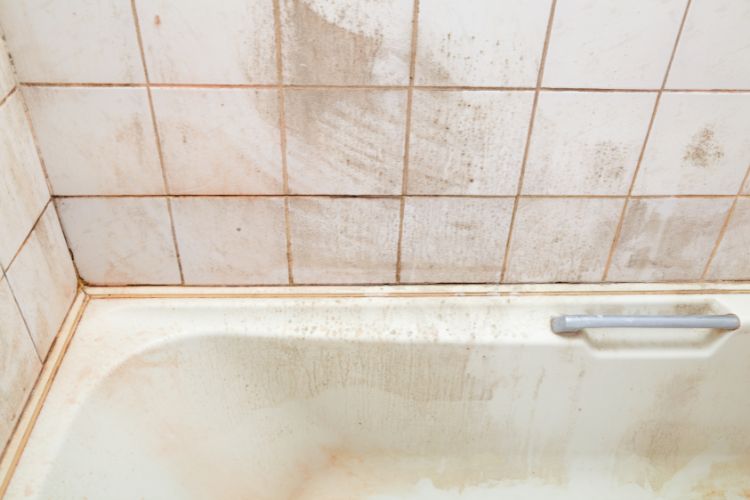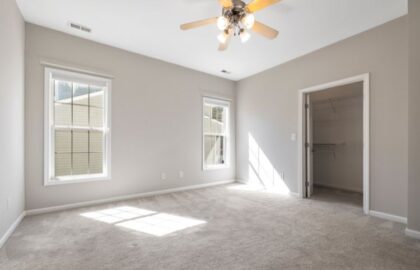
Rental inspections are the moments when our homes are put under the microscope. They’re more than just a routine check; these examinations are a crucial part of your tenancy.
Getting through them unscathed means smooth sailing, but failing? That can stir a whole storm of worries.
If you’ve ever found yourself staring down the barrel of an unsuccessful inspection, you’re not alone. There’s hope, and that’s where our guide steps in.
In this article, we’ll walk you through the whys of failed rental inspections. From understanding why they matter to deciphering what went wrong, we’re here to provide clarity.
Why Are Failed Rental Inspections a Problem?
In Australia, failed rental inspections can present a significant challenge for both tenants and property owners. These evaluations are critical assessments conducted by property managers or landlords to check the condition of a rented property.
The failure of a rental inspection can be a concern, affecting the tenant’s credibility and potentially leading to repercussions, such as eviction notices or rental payment disputes.
However, it’s crucial to recognise that a failed routine inspection isn’t the end of the road. With the right approach, tenants and rental property owners can navigate this challenge effectively.
Reasons for Failed Rental Inspections
When it comes to managing your properties in Cairns, Australia, rental inspections play a pivotal role in ensuring the upkeep of rented premises.
So, to make your life easier, let’s delve into the core reasons why initial inspections may not pass muster.
1. Lack of Cleanliness

One of the primary reasons for failed initial inspections revolves around tidiness standards.
Property managers assess the property’s cleanliness meticulously, emphasising the need for a tidy and hygienic environment.
Overlooking cleaning chores, un-addressed spills or cluttered spaces can significantly impact routine inspection outcomes.
2. Property Damage and Defective Conditions Leading to Failures
Defective conditions within the property, including damages to fixtures, water pipes, walls, or appliances, often lead to failed inspections.
Cracked tiles, broken exhaust fans, leaky taps, dysfunctional devices, or structural flaws can catch the inspector’s keen eye and result in inspection failure.
3. Non-Compliance with Specific Property Maintenance Requirements
Failure to adhere to specific property maintenance requirements as stipulated in the lease agreement can also be a determining factor in inspection failure.
These requirements encompass diverse aspects such as lawn maintenance, garden upkeep, or specific instructions for property preservation.
Having a comprehensive rental inspection checklist is pivotal for landlords, as it streamlines the evaluation process. It serves as a structured guide, ensuring that they don’t overlook crucial aspects during house inspections.
What Are the Legal Actions and Retaliatory Measures in Failed Inspections?
Failed rental inspections can sometimes lead to legal consequences. Property owners or real estate agents may initiate eviction procedures if tenants repeatedly fail to meet evaluation standards or violate lease agreements.
Renters facing eviction due to inspection failures should seek legal advice and understand their rights under the Residential Tenancies Act in Australia. Likewise, property owners must follow legal protocols outlined in the Act when initiating eviction proceedings.
What Are the Retaliatory Measures Used by Landlords After Failed Inspections?
In some instances, landlords may resort to retaliatory actions against tenants who raise concerns or complaints following a failed inspection.
These can include increasing rent, refusing to renew leases, or even filing eviction notices without valid reasons.
However, Australian tenancy laws protect tenants from such retaliatory actions. Renters facing these measures should document instances of failed inspections and subsequent landlord actions and seek legal counsel to protect their rights.
How Can Tenants Seek Redressal and Legal Recourse After Failed Inspections?

Tenants subjected to retaliatory actions or unfair treatment post-failed inspections have legal avenues to seek compensation.
They can file complaints with the relevant tenancy tribunals or agencies, presenting evidence of retaliatory measures taken by the landlord. These bodies can then intervene, ensuring fair treatment and adherence to tenancy laws.
How Do Failed Inspections Affect Rental Payments, Increases, and Arrears?
As we mentioned, failed inspections can lead to an increase in rent. So, in this section, we’ll cover how the evaluation can affect your bottom line.
How Do Failed Inspections Influence Disputes Regarding Rent Increases?
Failed inspections can be catalysts for disagreements regarding rent increases. Property owners might contemplate raising rent due to property damages or failed maintenance revealed during inspections.
However, tenants may oppose such increases, especially if the failed inspection issues remain unresolved or are attributed to the property’s conditions.
How Should Rental Arrears Be Addressed in the Context of Failed Inspection Scenarios?
Failed inspections leading to property damages or maintenance issues may also influence rental arrears.
Tenants have to promptly inform landlords about any issues post-inspection to mitigate arrears disagreements. Conversely, landlords should consider temporary rent adjustments until inspection-related problems are resolved.
How Do Governmental Agencies and Services Address Failed Inspections?
While failing a rental inspection can be a daunting experience, you have to remember that you’re not alone. There are a few governmental agencies that can help resolve the issue and ensure you know how to protect your rights.
What Is the Role of Governmental Bodies in Overseeing Failed Inspections?
Governmental agencies play a vital role in supervising rental properties and addressing issues arising from failed inspections. Regulatory bodies monitor compliance with tenancy laws, ensuring landlords adhere to inspection standards and tenants receive fair treatment.
Assisted Housing Services Available for Tenants Affected by Failed Inspections
Tenants encountering issues resulting from failed inspections can access various assisted housing services. These cater to individuals facing challenges in securing suitable housing due to failed inspections and ensuring access to safe and habitable accommodation.
Assistance programs, such as temporary housing support or financial aid, aim to alleviate insecurities caused by inspection-related problems.
What Responsibilities Do Agencies Have in Addressing Failed Inspection-Related Complaints?
Governmental agencies shoulder the responsibility of addressing complaints arising from failed inspections. They facilitate resolution processes between landlords and tenants, offering mediation or legal guidance to resolve disputes.
What Are the Judicial Proceedings and Provisions that Relate to Failed Inspections?
If you can’t resolve the issues that arise from failed inspections on your own, you can resort to court proceedings. There are several legal actions you can take to protect your rights as a tenant.
What Role Do Courts Play in Disputes Related to Failed Inspections?
Legal recourse through courts becomes necessary in unresolved failed inspection cases. Courts mediate disputes, interpreting relevant laws and tenancy agreements.
They offer a platform for tenants and landlords alike to present evidence, resolve conflicts, and seek fair judgements regarding failed inspection issues. Court proceedings also ensure adherence to legal protocols and provide a pathway for resolving complex disputes.
What Legal Provisions and Presumptions Exist Concerning Failed Inspections?

Legislation in Australia includes specific provisions and presumptions related to failed inspections. These legal guidelines define the responsibilities, obligations, and rights of both landlords and tenants in failed inspection scenarios.
These provisions stipulate criteria for failed inspections, set forth reasonable timeframes for rectifications, and establish protocols for resolving disputes.
What Specific Judicial Actions are Available for Tenants and Landlords Post Failed Inspections?
Tenants and landlords affected by failed inspections have access to specific legal actions. These include seeking compensatory damages, requesting repairs or rectifications, or pursuing eviction processes based on the severity of the failed inspection findings.
Legal avenues ensure that affected parties can seek appropriate remedies within the purview of the law.
Plus, judicial proceedings, legal provisions, and specific actions available post failed inspections play a pivotal role in upholding the rights of both landlords and tenants. That’s because they can ensure a fair resolution to inspection-related disputes.
How to Ensure a Successful Rental Inspection
At this point, you should have a better understanding of why a tenant may fail a rental inspection and what they can do about it. So, in this section, we’ll walk you through a few strategies to ensure you pass your next evaluation.
Ensuring a successful rental inspection involves proactive measures from both tenants and property owners. By adhering to specific guidelines and taking necessary preparatory steps, the likelihood of a favourable inspection outcome significantly increases.
1. Preparing the Property
Tenants should prioritise cleanliness and organisation before inspections. Thoroughly clean the premises, ensuring rooms, surfaces, and appliances are tidy and presentable.
Then, clear any clutter or personal items, particularly in commonly inspected areas like living rooms, kitchens, and bathrooms. Plus, arranging furnishings and belongings in an orderly manner can create a positive impression during the inspection.
2. Addressing Property Maintenance
Fixing minor defects or damages before the inspection is essential. Attend to any maintenance needs promptly to ensure the property is in good condition.
That includes repairing leaks, replacing malfunctioning fixtures, and addressing any visible signs of wear and tear. Attention to detail in maintenance contributes significantly to a positive inspection report.
3. Understanding Inspection Criteria
Understanding what inspectors typically look for can aid in preparation. This includes compliance with safety standards, cleanliness, functionality of appliances, and adherence to the tenancy agreement.
Tenants and property owners should familiarise themselves with the specific criteria outlined for rental inspections to address any potential issues beforehand.
There should be an entire section about the exact details in your rental contract.
Wrapping Up
Failed rental inspections pose significant challenges for both landlords and tenants. However, by understanding the evaluation criteria, maintaining the property diligently, and seeking legal recourse when necessary, renters can navigate these issues effectively.
Complying with regulations and utilising professional guidance are integral in avoiding failed inspections and ensuring a harmonious tenancy experience for all involved parties.







